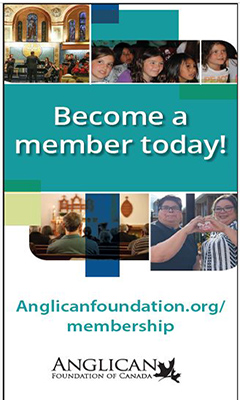Many of us are horrified at the extent of polarization in our world, like that found in our neighbours to the south, or in the UK where Brexit was voted in by similar tiny margins like we often see in American politics and in many other countries. Polarization usually leaves both sides feeling entrenched, isolated and with all kinds of “bridges burning.” Many painful divisions exist between family members or with friends or in communities of various kinds. While extremist politics play a large role, the question remains as to why is it so much worse now than in pre-internet times?
As many sources have pointed out, the internet made it much easier for people with whacky, scary, and dangerous ideas to find like-minded “comrades” online. In the past, those with such ideas were quite isolated since they were usually a small minority wherever they lived and had no way of knowing where other such people lived or how to reach them. For example, the “incels” or involuntary celibates — men who blame feminism in particular for their lack of a love life — have committed many crimes in recent years. In Canada, we had a horrific anti-feminist mass murder in Montreal on December 6, 1989, killing 14 young female engineering students — with the killer saying that feminists in non-traditional fields of study and employment had ruined his life. Of course, that was before the internet became pervasive, after which such extremist thought easily found like-minded thinkers to strengthen its stance.
On the internet, many people also spin conspiracy theories of many kinds. And despite the absolute ludicrousness of many such ideas, they often find hundreds or thousands or millions of followers. Among the most infamous group doing this is QAnon, with countless members on social media. QAnon also has many followers in Canada and other countries — where they seem to contribute to greater polarization on many levels. With the arrival and ongoing presence of COVID-19 since 2020, polarization has escalated in the form of increasing mistrust of medical doctors, nurses, vaccine researchers, experts and scientists of many kinds. In its almost 30-year existence, the internet has convinced many people that anyone can be an expert on anything because each individual can find support for his or her ideas and opinions online.
Neutrality might initially seem to be a better option and goal than polarization; but let’s keep in mind what Elie Wiesel said: “Neutrality helps the oppressor, never the victim. Silence encourages the tormentor, never the tormented.” Desmond Tutu voiced something similar: “If you are neutral in situations of injustice, you have chosen the side of the oppressor.” Popular memes on social media often encourage people not to care or not to get involved with things beyond their control. There are many messages suggesting that one’s own peace of mind is far more important than whatever is happening in world news — so let’s just smile and mind our own business. Sounds innocent enough, but instead it can easily be an invitation to full-blown selfishness or becoming slaves to our egos. In a vastly interconnected world, information about the sufferings and struggles in the world is always at our fingertips. Do we respond with compassionate action, or do we just say, “none of my business?”
There are two scriptures I especially think about in this regard. Firstly, Revelation 3:16 in which Jesus says, “Because you are lukewarm, and neither cold nor hot, I will spew you out of my mouth.” The Book of Revelation is somewhat like Harry Potter in its ongoing fierce battles between good and evil, so there’s not much room for being indifferent or neutral. Secondly and more significantly, I ponder the Tower of Babel in Genesis 11. This story always leaves me with this question: Why did God disapprove of everyone speaking the same language? Why was he so angry about something that presumably would bring greater human unity by promoting more understanding of each other? I mean, if we’re speaking the same language, we ought to be more unified, right? Wrong. In our times we can see that the universal “language” of our internet connections — bringing the highly vaunted “democratization of knowledge” has done the opposite of uniting the human race. Instead, it has contributed immensely to polarizations in almost every field of human thought and endeavour. Yes of course humans still have many languages, but Google Translate can bridge the gap (despite its inadequacies). More importantly though, even when other languages are not translated, the internet shows us ongoing news — both real and fake — as well as infinite numbers of locally made videos showing us snippets of lives lived in other cultures around the world. Never before in human history have such glimpses into so many people’s lives been so readily available. Why that has not brought greater empathy and compassion is an ongoing question in my mind and heart.
While we know the great harms that polarization is causing around the world today, let’s be careful that we don’t go to the opposite extreme of neutrality. As a well-known saying goes: “Hate is not the opposite of love; indifference is the opposite of love.” While it’s important to seek better understanding and appreciation of those who seem so different from us, and it’s good to seek common ground, we must avoid the slippery slope of selfish neutrality that often turns a cold shoulder to the pains and struggles around the world.
We are interested in hearing your thoughts. We welcome letters to the editor on this and other articles in Faith Tides by emailing [email protected]



